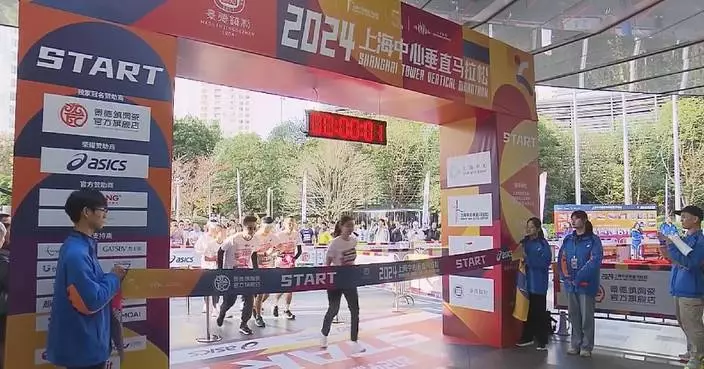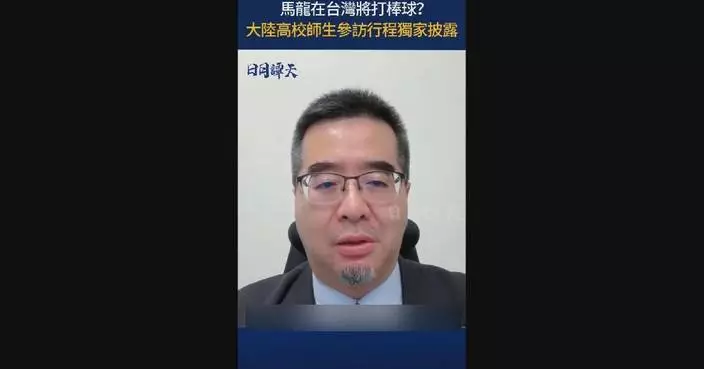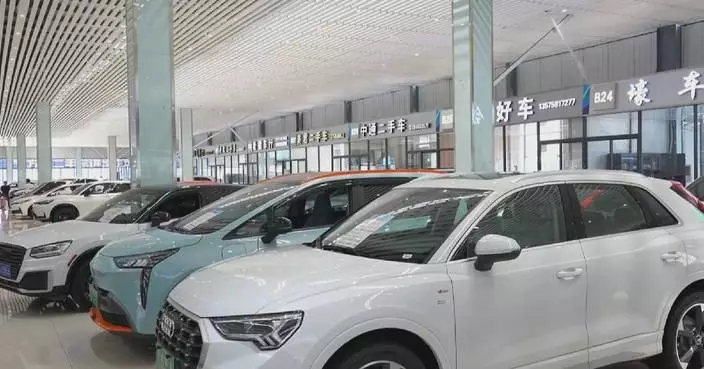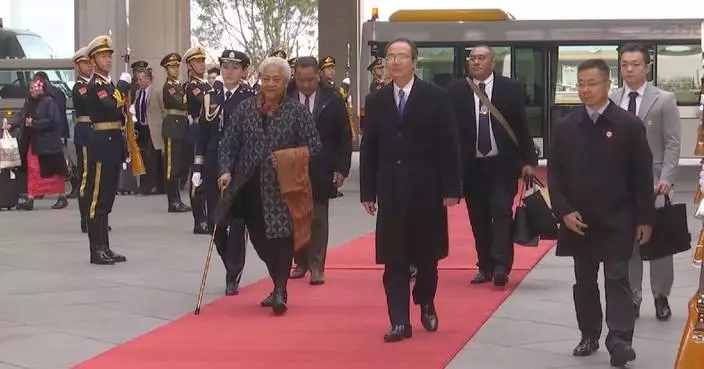Local governments across China are setting up diversified platforms and mechanisms to facilitate the export of used vehicles, in a bid to further tap into the the growing demand from overseas markets.
China officially kicked off the export of second-hand cars in May 2019, with Beijing, Tianjin, Shanghai, and Guangdong among the first batch of ten cities allowed to conduct such trade.
Since then, China's second-hand car exports have experienced fast growth, with the export volume jumping from the initial 3,036 units in 2019 to 69,000 units in 2022. The volume continued its growth in 2023 to a staggering 275,000, and is projected to jump to 400,00 by the end of this year.
Such exponential growth has attracted local governments to take various measures to boost the export of used vehicles, and Shanghai is one of them. The Shanghai Port Used Car Export Comprehensive Service Center, China's first used car export inspection point in a port area, opened on Wednesday at the Haitong Port in Shanghai's Pudong New Area.
Established by Shanghai Waigaoqiao Free Trade Zone Group Co. Ltd., the center offers one-stop services for vehicle registration and port logistics to used car exporters in Shanghai and neighboring areas, reducing risks and costs associated with the unnecessary transport of exported vehicles and enhancing efficiency.
"In the past, enterprises had to go to the used car trading market to complete the inspection procedure and then transport the vehicles to the port for export. Now through the establishment of our service center, the vehicles can be directly inspected here after being transferred to the port and then exported," said Shan Qijin, deputy general manager of Shanghai Waigaoqiao Automobile Exchange Market Co., Ltd.
"We can now reduce the logistics cost by 600 to 800 yuan (roughly 100 U.S. dollars) per vehicle on average, and the operation efficiency can be improved by 10 days, which is very helpful to improve the turnover rate of the entire enterprise," said a staff member of a used car exporter in Shanghai.
As a major automobile industry base in China, Chongqing Municipality is also taking measures to bolster the export of Chongqing-produced vehicles.
In the first half of 2024, the city exported 223,000 vehicles to 42 other countries and regions across the globe, including 12,796 second-hand ones, with the export value reaching 360 million U.S. dollars.
Chongqing's used car exports have been even expanded to the mid-to-high end markets.
"Some of China's homemade mid-to-high end vehicle models are very popular with overseas customers, but they are not sold all over the world. So it is a good choice for overseas customers to get similar used cars from China. So far, our business has been expanded to the Middle East, Dubai and some countries in Europe, and customers there have a great demand for our Chinese new energy vehicles," said a staff member of a used car exporter in Chongqing.
Tianjin Municipality in north China has also ramped up efforts to branch out the export of engineering vehicles, commercial vehicles, traditional energy vehicles, and new energy passenger vehicles over the past couple of years.
From January to October this year, more than 8,000 used cars were exported by the city.
In addition, Tianjin has rolled out the cross-border warranty service for exported used cars, allowing overseas consumers to get access to customer service as soon as possible and obtain effective guidance on after-sales warranty.
"The first batch of our service outlets has been built in Central Asia, and the total number is about 50. Cross-border warranty service was completely a gap in the market before. Now we can provide customers with a complete set of one-stop after-sales services more effectively, and our export volume will definitely increase in the future," said a staff member of a used car exporter in Tianjin.
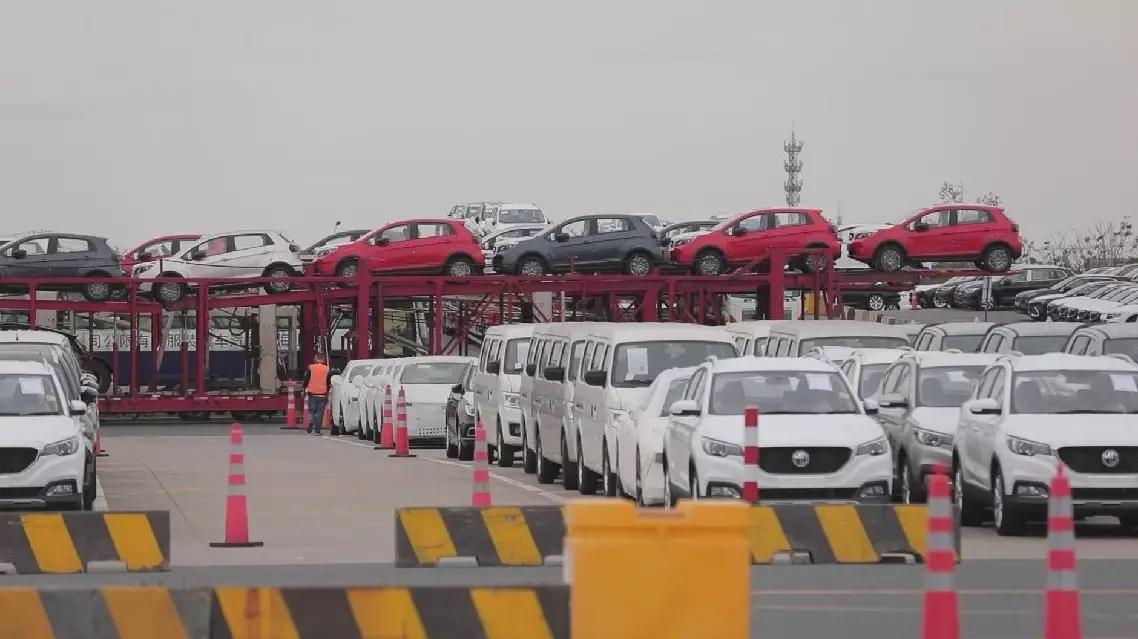
China improves services to facilitate used car export





